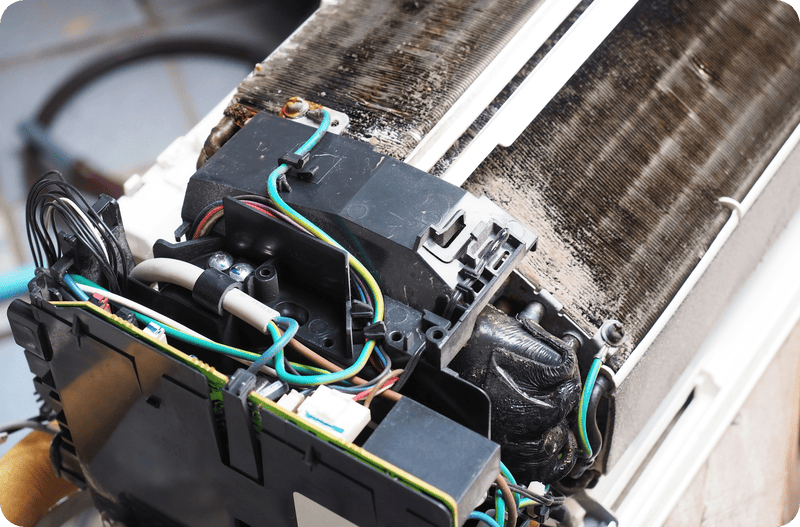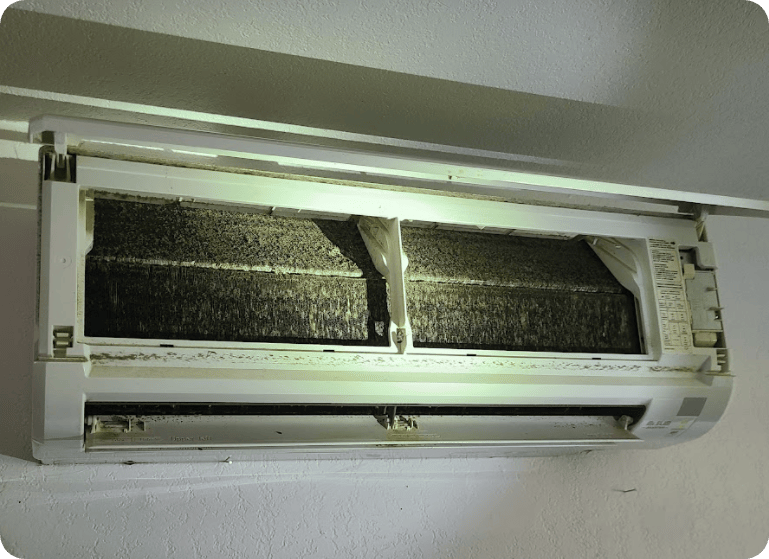How To Heal Your Body From Mold Toxicity Or Mold Exposure
 The effects of mold exposure or mold toxicity range from mild physical ailments to possibly even serious neurological issues. So, as you take steps to remove mold from your home, it’s also important to focus on healing the damage your body has taken as a result of exposure.
The effects of mold exposure or mold toxicity range from mild physical ailments to possibly even serious neurological issues. So, as you take steps to remove mold from your home, it’s also important to focus on healing the damage your body has taken as a result of exposure.
In this article, we’ll clear the air about the different types of health issues that stem from mold in your home. Then, we’ll look at recovering your health and how to prevent it from happening again.
Related: X early warning signs of mold toxicity
Now, you may be wondering why an HVAC cleaning service is writing about a health-related topic. The reason is simple: It turns out that mini split systems are excellent breeding grounds for mold and other biotoxins.
We find anything from traces of mold to full-blown infestations in the ductless air handlers we service. Those mold spores circulate through your home and affect your health.
We’ll get into that later in the article. For now, you can call us at (208) 779-5596 with any questions about the mini split in your Boise Metro or Treasure Valley home.
Mold And Your Health: Four Terms To Know
There’s a lot of confusion — and some controversy — about the effects mold can have on your health. So, we want to start by distinguishing four terms when it comes to hold and your body. Each of these are a different topic:- Mold Exposure
- Mold Allergy
- Mold Infection
- Mold Toxicity
Mold Exposure
Mold exposure is simply being around mold spores, usually in dark or damp places. If you’re allergic to mold, you’ll notice symptoms. Exposure itself isn’t necessarily harmful — after all, mold isn’t always necessarily toxic. But, being around it too long and breathing it in all the time can lead to health problems.
Related: Indoor AIr Toxins (And Their Symptoms) In Boise Metro And Valley County Homes
Mold Allergy
A mold allergy is when your immune system overreacts to the presence of mold spores in your body. Symptoms include itching and skin irritations, runny nose, coughing, and watery eyes. It can also cause restricted breathing and trigger asthma attacks.
Related: Excellent Indoor Air Quality At Home Is Crucial For People With Asthma
Mold Infection
Mold infection is caused by exposure to Aspergillus, a specific type of mold that harms people with weakened immune systems. Along with allergy symptoms, people with other medical conditions experience coughing, coughing up blood, fever, chest pains, and shortness of breath.
Mold Toxicity
Mold toxicity is a variety of physical and neurological symptoms from prolonged exposure to mold spores. Along with allergy-like symptoms, people report vertigo, tinnitus, digestive issues, fatigue, memory issues, and disorientation.
Mold toxicity is a controversial diagnosis. Parts of the medical community say it’s allergies or the more generalized “Sick Building Syndrome.”
Recovering From Mold-Related Illness
Most symptoms and illnesses are treatable with simple remedies and easy-to-follow practices. Of course, we can’t diagnose you or promise these will work. But, here’s an idea of what it takes to recover from mold-related illnesses:
- Consult Your Doctor
- Remove Mold From Your Home
- Over-The-Counter Medications
- Eat A Healthy Diet
Consult Your Doctor
Your first step toward treating any mold-related illness is to consult your doctor. They often start with antihistamines, decongestants, medications to combat inflammation and sinus problems, or inhalers to address breathing issues.
Over-The-Counter Medications
You can combat allergy-like symptoms the same as you would seasonal allergies with over-the-counter antihistamines, decongestants, and skin treatments for rashes.
Eat A Healthy Diet
Eating well helps your body’s immune system fight off infections. Avoid processed food or items with a lot of sugar. Focus on non-sugary foods, focus on non-starchy vegetables and low-sugar fruit.
Stay away from foods that often contain fungi or mold; These include mushrooms, cheese, meat or fish, soy sauce, vinegar, salad dressing, or ketchup. And avoid leftovers left around for more than a day.
Remove Mold From Your Home
One of the most important ways to avoid a relapse or new infection is getting rid of mold in your home. This often involves mold remediation from a certified, professional mold removal company.
Related: How Long Does Mold Remediation Take?
Preventing Mold Buildup In Your Home
The best way to avoid mold-related illnesses is to prevent mold buildup in your home. You can do that by:
- Controlling Humidity
- Using Exhaust Fans
- Replacing Soaked Upholstery Or Carpets
- Keeping Your HVAC System Clean
Control Humidity
Keep your home’s relative humidity between 30 and 60 percent. This is most challenging in the summer. Your mini split or central air acts as a dehumidifier, and you can add room dehumidifiers or whole-home units.
Use Exhaust Fans
Along with getting rid of bathroom and cooking smells, exhaust fans in the bathroom and kitchen remove excess moisture in the form of steam from showers and cooking.
Replace Soaked Upholstery Or Carpets
Don’t just dry out carpets or upholstery that becomes soaked. Even if it doesn’t feel wet, that dampness is enough for mold spores to take hold. Get rid of these items altogether.
Keep Your HVAC System Clean
Mold cultivates incredibly well in the air handlers for ductless mini splits. The insides are the perfect combination of dark, warm from hot air passing through, and damp from water condensing during the cooling process.
It’s common to open a unit and find microbial buildup on the coil that’s this severe:

A professional deep cleaning flushes out these toxins. It’s essential to get this done because mold spores and other contaminants spread through the air you breathe when the system is running.
Related: How Often Should A Mini Split Be Cleaned?
Mini Split Cleaning In Donnelley, ID
HydroKleen208 guarantees the most effective mini split cleaning for your home or business in Donnelly, ID or anywhere in Valley County or Boise Metro. Our process and non-toxic cleaning agents flush out all mold spores and other contaminants from your ductless system. To learn more or schedule a cleaning, call us at (208) 779-5596.
